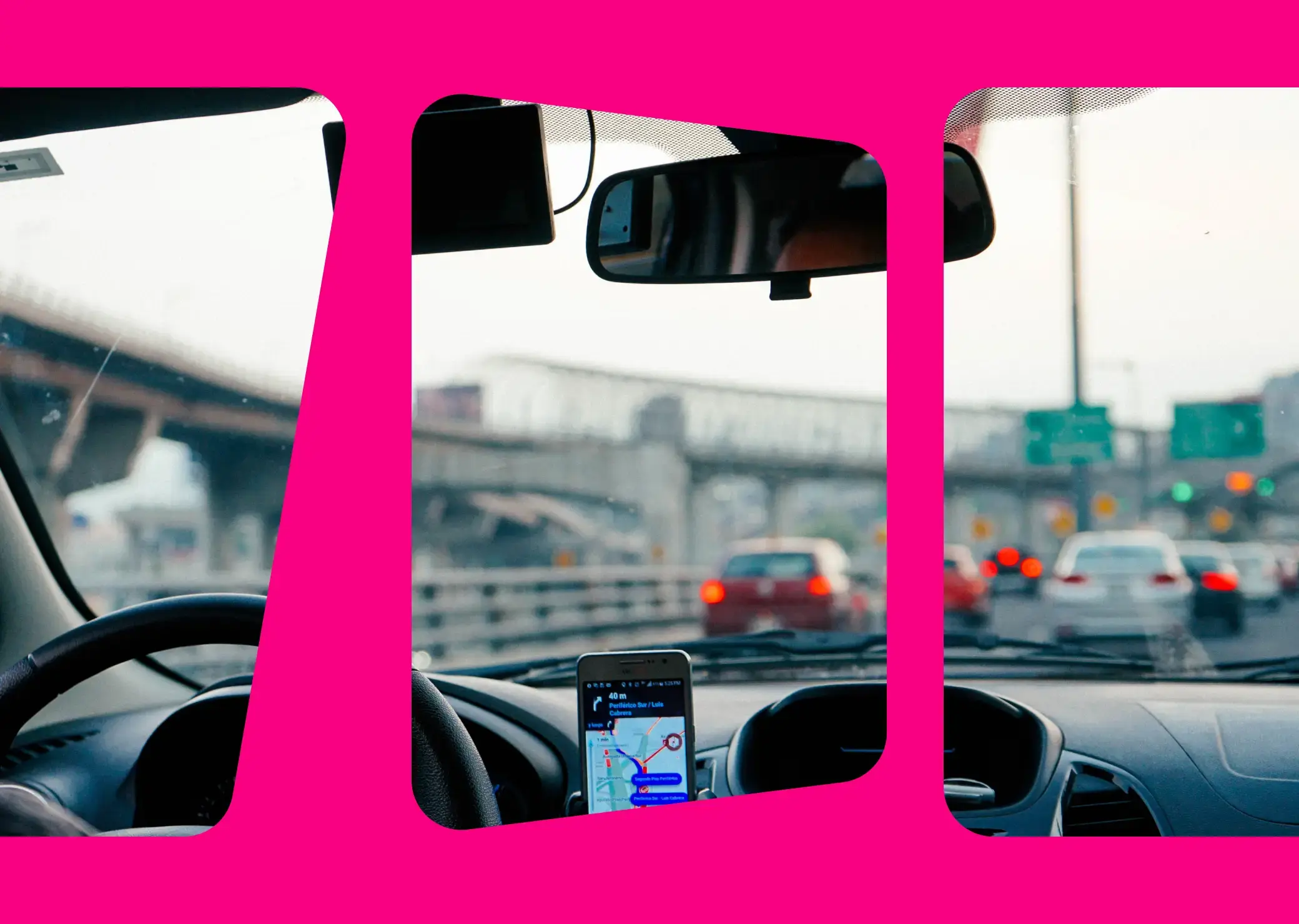- Carmoola
- Blog
- Car Finance
- Hire purchase or leasing? Key differences and what to choose
- 🗞 Car Finance
- Last updated: Feb 20, 2026
- 12 Min Read
Hire purchase or leasing? Key differences and what to choose
Written by

Verified by


See how much you can borrow in 60 seconds
| Representative Example | |
|---|---|
| Loan amount | £10,000 |
| Interest rate | 13.9% APR |
| 54 payments of | £246 |
| Total cost of credit | £3,284 |
| Option to purchase fee | £1 |
| Total payable | £13,285 |
When you’re choosing between hire purchase and leasing, the key difference is whether you want to own the car or if you prefer driving newer models more often.
Hire purchase (HP finance) helps you split the cost of owning a car into reasonable monthly payments, with ownership transferred to you at the end of your car loan term. On the other hand, leasing (personal contract hire) means you’re renting the car for a set period. Then you hand it back.
Our guide breaks down how HP car finance and leasing work. We compare the costs and benefits to help you make an informed decision based on your needs.
Key takeaways
-
Hire purchase means you own the car after making all payments, while leasing means you return it at the end.
-
Leasing typically offers lower monthly payments but comes with mileage limits and condition requirements.
-
Your choice between hire purchase or leasing should depend on whether you value ownership, flexibility, or predictable monthly costs.
-
Businesses can reclaim VAT on lease payments, but hire purchase offers capital allowances instead.
-
Always compare total costs over the full term, not just monthly payments.
What's the difference between
hire purchase and leasing?
Hire purchase lets you pay to own it outright, while leasing lets you pay to use a car for a set period. With leasing, you return the car at the end, while with hire purchase, the car is yours once you’ve paid off the total cost.

This difference also affects who takes on the risk of the car’s depreciation. In a lease, the finance company holds that risk since it owns the car. With hire purchase, you're paying towards ownership, so the car’s resale value ultimately affects you. You can think of it like renting versus buying a house, where your obligations and benefits vary.
Leasing has mileage limits and condition rules, so exceeding the agreed mileage or returning the car with damage could lead to extra charges. Hire purchase, on the other hand, has no such restrictions, as you’re working toward ownership.
 How does hire purchase work?
How does hire purchase work?
Hire purchase spreads the full cost of a car over fixed monthly payments. Ownership transfers to you at the end. Some lenders may require you to pay a deposit of around 10%. Then you make regular payments covering the remaining balance plus interest. This is like buying a house with a mortgage. Every payment gets you closer to 100% ownership.
Once you’ve made all payments and you’ve paid the option to purchase fee, the car becomes yours legally. Until that point, the finance company technically owns the vehicle. But you can use it without mileage limits or usage restrictions.
How does car leasing work?
Leasing is essentially renting a car for a fixed period, usually between two and four years, with fixed monthly payments. You’ll typically make an upfront payment, usually equivalent to three to six months of the lease, and then return the car when your contract ends.
Think of this like renting a house. You pay a deposit, live in it for a while, and then move out.
Before you sign, you’ll agree on a mileage limit, usually between 8,000 and 15,000 miles per year. Stick to this and return the car in good condition, and all you need to do is hand back the keys. If you go over the agreed mileage or return the car with damages beyond normal wear and tear, expect extra charges.
At the end of the lease, most people return the car and start a new lease with a different vehicle. Some contracts allow for extending the lease or even negotiating a purchase, but this isn’t always available with standard personal contract hire.
If you want more flexibility and the option to own your car at the end of the contract, PCP finance might be an option to consider.
Leasing vs hire purchase: side-by-side comparison
You'll need to compare hire purchase or leasing beyond looking at the monthly payments. You need to understand total costs and commitments. Both suit different priorities, so consider what matters most to you.
Leasing typically means lower monthly payments because you're only covering the car's value loss during your contract. You're not paying the full price. Hire purchase costs more monthly but builds toward something you'll own. You can also sell it later.
Make sure to watch for hidden costs on both sides. Leasing brings excess mileage charges and return condition fees. Hire purchase carries risks of negative equity when the car's value drops below what you owe.
| Feature | Leasing (PCH) | Hire Purchase (HP) |
| Ownership | Never | Full ownership at the end |
| Monthly cost | Generally lower | Generally higher |
| Mileage limits | Strict annual caps | No limits |
| Maintenance | Can be included | Driver's responsibility |
| Tax (for businesses) | Can reclaim 50-100% VAT | Claim capital allowances |
Both options require appropriate insurance. GAP insurance is worth considering to cover any shortfall if the car is written off.
Early exit
Exiting either agreement early can be expensive. In a lease, you may be liable for a significant percentage of the remaining payments. With HP, you can settle your car finance early by requesting a settlement figure from your finance provider. If you've paid off enough of the balance, you can sell the car to clear the debt.
Credit score
Both options require a credit check. A higher score typically unlocks lower interest rates (APR) on HP or lower monthly rentals on a lease. If you have a lower credit score, you may need to provide a larger upfront deposit.
Impact of car depreciation
Depreciation risk sits with you under hire purchase and finance leases. If your car loses value faster than expected, you may face negative equity or receive less when selling.
Having a leased car transfers this risk to the finance company. They worry about the car's future value, not you. This particularly suits electric vehicles, where battery technology changes quickly.
Different vehicles lose value at different rates. Premium brands often hold value better.
Tax
The tax treatment of hire purchase and leasing varies. Businesses can often claim lease payments as an expense, while hire purchase allows you to claim capital allowances on the vehicle. Both also have VAT considerations, so it's good to understand these before making your decision. Carmoola lends to individuals and not businesses.
Choosing the right option
Leasing lets you pay for using a car. Hire purchase lets you pay to own it. Each option suits different needs and priorities.
Choose leasing if:
- You want the lowest possible monthly outgoings.
- You enjoy driving a new car every few years.
- You have a predictable annual mileage.
Choose hire purchase if:
- You want to eventually stop making monthly payments.
- You drive high mileages that would trigger lease penalties.
- You want the freedom to modify or keep the car long-term.
Compare like-for-like quotes covering the same term, mileage, and fees. Check the total cost over the full agreement, not just monthly payments.
FAQs about hire purchase
Hire Purchase vs leasing Which is better?
Hire Purchase vs leasing Which is better?
Hire Purchase could be the best choice if you want to eventually own your car and keep it for many years. It’s also ideal if you drive long distances regularly, as there are no mileage restrictions.
Is leasing cheaper than hire purchase in the UK?
Is leasing cheaper than hire purchase in the UK?
Leasing usually offers lower monthly payments because you only cover the car's depreciation. However, you never own the asset. Hire purchase costs more monthly but ends with you owning the car. This may prove a better value long-term if you keep vehicles for years.
Can you buy a leased car at the end of the term?
Can you buy a leased car at the end of the term?
Standard personal contract hire doesn't include a purchase option. You return the car when your agreement ends. Some leases may offer end-of-term purchase options, so make sure you check your specific contract terms before assuming you can buy.
Can a business reclaim VAT on a hire purchase car?
Can a business reclaim VAT on a hire purchase car?
VAT on hire purchase is paid upfront with the purchase price. It's usually not reclaimable for cars unless used exclusively for business. Carmoola lends to individuals and not businesses.
What credit score do you need for HP or leasing?
What credit score do you need for HP or leasing?
A good credit score improves your approval chances and secures better interest rates. There's no universal minimum, as each lender sets their own criteria. Poor credit might mean you need a higher deposit.
See how much you can borrow in 60 seconds
| Representative Example | |
|---|---|
| Loan amount | £10,000 |
| Interest rate | 13.9% APR |
| 54 payments of | £246 |
| Total cost of credit | £3,284 |
| Option to purchase fee | £1 |
| Total payable | £13,285 |
Related articles
PCP vs leasing: Which is better?
If you’re looking into your options for car financing, it can be confusing. Personal Contract Purchase (PCP) and leasing both...
What’s the difference between car leasing and subscriptions?
Looking for a new car, but not sure about committing to actually buying and owning one? It makes sense - our attitude to owning...
Car finance vs leasing: which is better?
If you're considering how to fund your next vehicle, understanding the differences between car finance (HP and PCP) and leasing...

.webp?width=832&height=592&name=customer-support%20(1).webp)












.webp?width=400&height=285&name=online-shoppers-with-dog%20(1).webp)


.jpg?width=500&height=356&name=Vintage%20car%20going%20to%20an%20old%20town-1%20(1).jpg)





